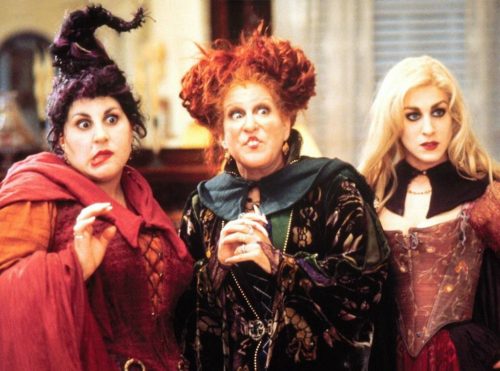HULIQ
Best New Artist Grammy: Winning Award Is A Curse?
By Norman Byrd on 2012-02-12
For some odd reason, winning the Best New Artist Award at the Grammys has become associated with having an artist’s career cursed from that moment on. But is there anything to it? Are Best New Artists cursed?
One of the most prestigious awards presented at each annual Grammy Awards ceremony is the Best New Artist Award. But over the years, the award has been considered a curse by a few and the accusation is oft repeated in the media. However, looking back on the 46 awards that have been awarded, calling the award a curse might not be the most accurate description.
Only a few of the winners could be considered “one hit wonders,” which would easily describe a career in the music industry as a failure to deliver on the promise after winning the Best New Artist award. But artists like Taste of Honey (“Boogie-Oogie-Oogie”), Debby Boone (“You Light Up My Life”), Starland Vocal Band (“Afternoon Delight”), and Marc Cohn (“Walking In Memphis”) seem to be an exception to the rule.
The Best New Artist Grammy was first presented in 1959. It is what is known as a “general field” award, which means it is presented to the winner of a set of nominees from across the various music categories. For instance, the 2012 Grammy for Best New Artist has as nominees a country band (The Band Perry), an indie folk band (Bon Iver), a Dubstep electronic dance producer (Skrillex), and a male and afemale hip-hop artist (J. Cole and Nicki Minaj, respectively). Over the years, nominees have included classical, pop, rock, soul, R&B, jazz, and even comedy performers.
Among the most well known Best New Artist Grammy winners include comedic legend Bob Newhart, singer/actress Bette Midler, The Beatles, Tom Jones, Mariah Carey, Sade, Toni Braxton, Christina Aguilera, Maroon 5, Alicia Keys, The Carpenters, Robert Goulet, Natalie Cole, Carly Simon, Marvin Hamlisch, Sheryl Crow, 2012 Grammy nominee Carrie Underwood, six-time 2012 Grammy nominee Adele, and Crosby, Stills, and Nash.
Of course, there are a few more, like Leann Rimes and John Legend, that have also done well for themselves.
However, there are artists that seemed to have been reaching their peak when they won Best New Artist as well, although they seem to be far fewer. These artists include Jody Watley, Culture Club, Christopher Cross, Bruce Hornsby and the Range, America, Cyndi Lauper, Arrested Development, and Lauryn Hill. They sometimes had a string of hits or their songs have become mainstays on the radio, but their subsequent careers seem to have dwindled to near nonexistence.
And then there is Amy Winehouse, the 2008 winner, whose career flared briefly, only to end tragically in her death.
Some believe the curse story began — or at least caught fire in the mainstream media — after a 2002 interview with Starland Vocal Band member Taffy Danoff. “We got two of the five Grammys – one was Best New Artist,” he told VH1’s “100 Greatest One Hit Wonders.” “So that was basically the kiss of death and I feel sorry for everyone who’s gotten it since.”
But given that the award has been presented 46 times since its inception, the recipients appear to have gone on to spectacular and long careers, achieved legendary status, or at least had a good run as a recording artist. The one hit or few hit wonders have been rare.
But there have definitely been a few notable misses by National Academy of Recording Arts and Sciences, which presents the annual awards.
In 1968, the Jefferson Airplane (which morphed into Jefferson Starship) and the 5th Dimension lost to one hit wonder Bobbie Gentry (“Ode To Billie Joe”). In 1977, Boston and the Brothers Johnson lost to Starland Vocal Band. The Cars, Chris Rea, Toto, and Elvis Costello all lost to A Taste of Honey in 1979. In 1980, The Blues Brothers, Dire Straits, and comedic genius Robin Williams lost to Rickie Lee Jones (“Chuck E’s In Love”). And Boyz II Men and Seal lost to Marc Cohn in 1992.
Still, all in all, the Best New Artist awards seem to have been awarded to deserving and promising artists each year. It is only with 20/20 hindsight that members of the National Academy and the public can see that what was expected may have been far more than the artist could have delivered (and then there was the Milli Vanilli scandal). But, then, getting the award does not convey continued success. And given the fickleness of the American listening and buying public, which sees popular acts rise and fall with great regularity, it is an amazing accomplishment that any of the artists that have won the award have gone on to careers of continuing success and, in some cases, legendary stature.
But those who did not? Cursed? Not in the least. The artists accomplished something so few will ever find themselves in a position to ever achieve. The law of averages dictates that not all will become successful, which is the way of all things. But to blame an artist’s lack of success on a superstitious supposition that can only be measured by hindsight seems a bit rationalistic.
Besides, artists that have been nominated alongside those who’ve achieved great success have many times done so themselves. Legendary bands Chicago and Led Zeppelin were nominated in 1970 and lost to Crosby, Stills, and Nash. The following year, Elton John lost to The Carpenters. Green Day was nominated along with Sheryl Crow in 1995. Kid Rock and Britney Spears were nominated the same year as Christina Aguilera (2000). More recently, this year’s leading nominee, Kanye West (seven nominations), lost to Maroon 5 in 2005. One of 2012’s second-leading nominees, Adele, won over Taylor Swift.
So, final ruling: The Best New Artist Grammy award is not cursed. Nor is it blessed. It is simply an accolade, a trophy, for finding the confluence of public popularity, industry success, and peer approval during an artist’s breakout period. Nothing more. Nothing less.
The Best New Artist and dozens of other awards will be presented at the 2012 (54th Annual) Grammy Awards in Los Angeles on Sunday, Feb. 12. The ceremony will be broadcast live beginning at 8:00 p.m. (EST) on CBS Television.








